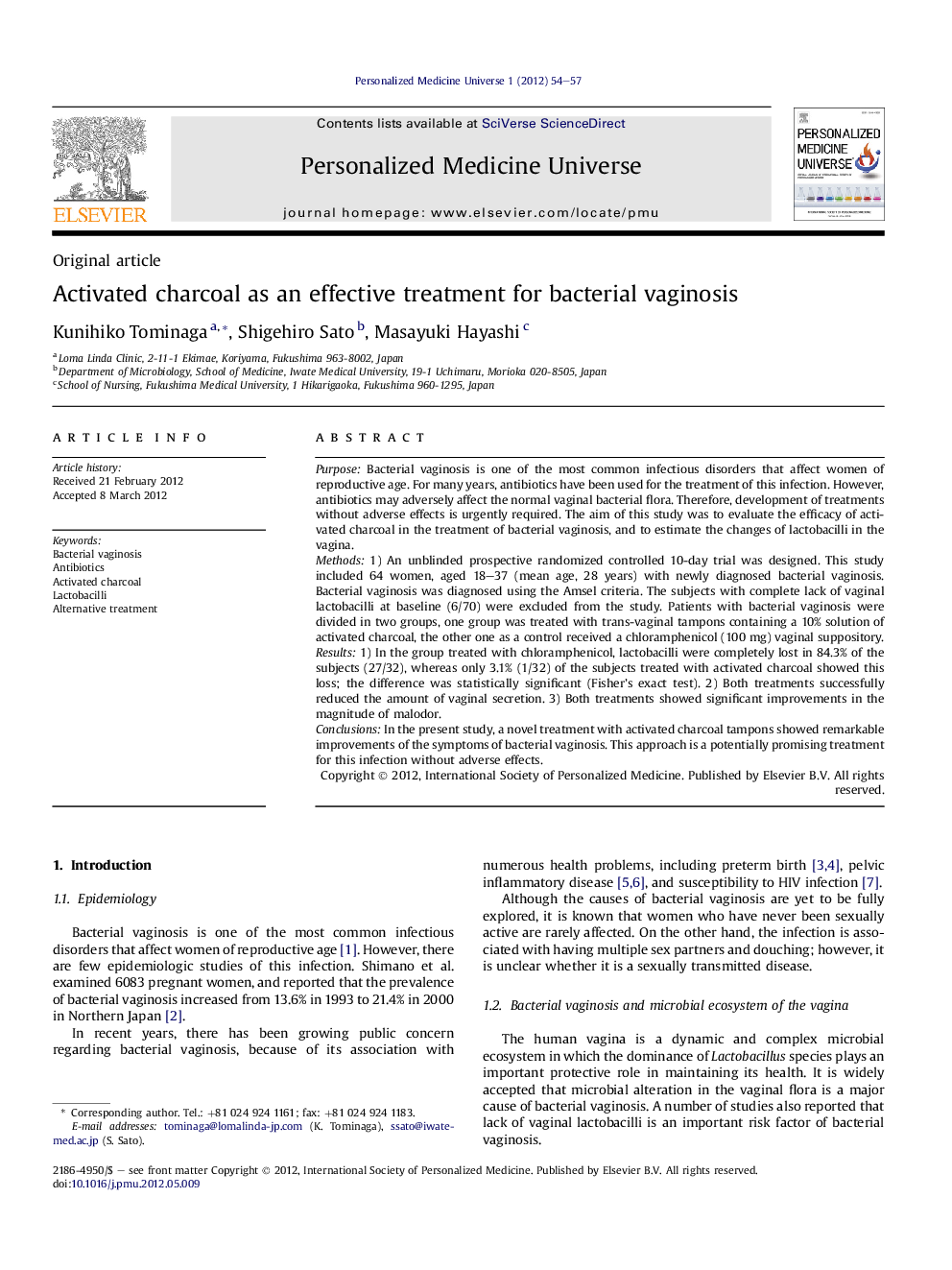| Article ID | Journal | Published Year | Pages | File Type |
|---|---|---|---|---|
| 3382668 | Personalized Medicine Universe | 2012 | 4 Pages |
PurposeBacterial vaginosis is one of the most common infectious disorders that affect women of reproductive age. For many years, antibiotics have been used for the treatment of this infection. However, antibiotics may adversely affect the normal vaginal bacterial flora. Therefore, development of treatments without adverse effects is urgently required. The aim of this study was to evaluate the efficacy of activated charcoal in the treatment of bacterial vaginosis, and to estimate the changes of lactobacilli in the vagina.Methods1) An unblinded prospective randomized controlled 10-day trial was designed. This study included 64 women, aged 18–37 (mean age, 28 years) with newly diagnosed bacterial vaginosis. Bacterial vaginosis was diagnosed using the Amsel criteria. The subjects with complete lack of vaginal lactobacilli at baseline (6/70) were excluded from the study. Patients with bacterial vaginosis were divided in two groups, one group was treated with trans-vaginal tampons containing a 10% solution of activated charcoal, the other one as a control received a chloramphenicol (100 mg) vaginal suppository.Results1) In the group treated with chloramphenicol, lactobacilli were completely lost in 84.3% of the subjects (27/32), whereas only 3.1% (1/32) of the subjects treated with activated charcoal showed this loss; the difference was statistically significant (Fisher's exact test). 2) Both treatments successfully reduced the amount of vaginal secretion. 3) Both treatments showed significant improvements in the magnitude of malodor.ConclusionsIn the present study, a novel treatment with activated charcoal tampons showed remarkable improvements of the symptoms of bacterial vaginosis. This approach is a potentially promising treatment for this infection without adverse effects.
